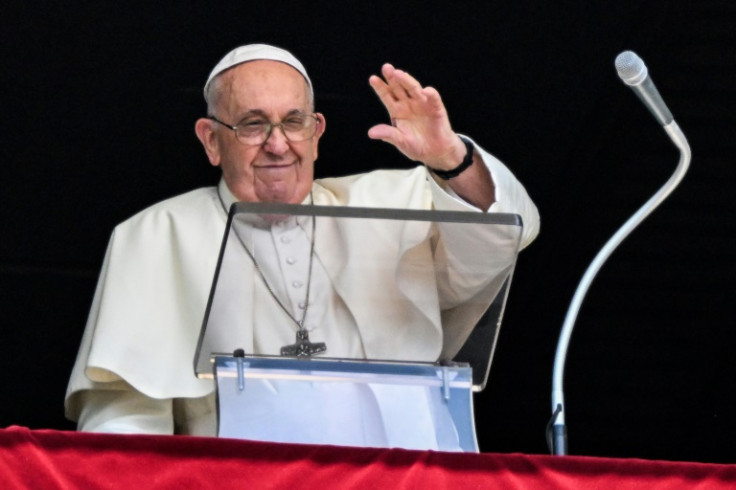
The Synod of Catholic Bishops began in Vatican City with great expectations for the Catholic Latino community in the U.S. According to the United States Conference of Catholic Bishops, more than one-third of all Catholics in the United States are Latino, and more than 50% of all Catholics in the country under the age of 25 are of Hispanic descent. As for the clergy, there are 45 Latino bishops and more than 15% of ordained priests are of Hispanic origin.
Therefore, the "Synod of Synodality", as this momentous gathering of bishops is called, and its conclusions, are of great interest to large sectors of Latino community in the country.
The event has been preceded by controversy in ecclesial circles because of certain
proposals made by more progressive sectors within the Church that have already been rejected by conservative ones.
Among the most prominent of the latter tendency is U.S. Cardinal Leo Burke, who, along with four other cardinals, publicly expressed dissatisfaction with the issues to be brought before the synod in a public letter called "Dubia," which in Latin means "doubt."
Progressive sectors within the Catholic Church have been pushing for bold reforms such as the priesthood for women, the blessing of gay couples, the end of priestly celibacy, the ordination of married men, communion for the divorced and remarried, and the collegial constitution of Church government, among others.
These topics, some of which have already been addressed in previous synods, will be the
subject of a more in-depth analysis by the prelates gathered in the Vatican, as Pope Francis
himself stated.
"Now there is a hypothesis about this synod: the priesthood for women. And they say so often that the bishops are afraid. I ask you communicators to do your work well, justly, so that the Church and people of good will understand that in the Church, too, the priority is to listen," Francis urged.
Theologians, canonists and experts point out that the approval of these reforms would further deepen the already existing division between progressives and traditionalists, even leading to the possibility of a schism in the Church.
One side would be in favor of carrying the principles of reform proposed in the Church since the Second Vatican Council to their ultimate consequences, and the other would likely oppose them, pointing out that no human authority within the Church can change the essential dogmas handed down by the Apostolic Tradition and the Magisterium of the Church during its twenty centuries of existence.
Jorge Morales, a Colombian immigrant living in the state of Florida, is an active member of the John XXIII Group, a national Catholic lay organization that began decades ago in Puerto Rico to welcome reformers within the Church.
Morales told Latintimes.com that he agrees that women can be deacons, but not presbyters. He approves of the ordination of married men to the priesthood and the communion of the divorced. "I agree because I have personally suffered this situation as a practicing Catholic divorced from my wife," he said. Morales is also a youth minister at Holy Name of Jesus Parish in West Palm Beach, Florida, where he helps prepare young people for confirmation.
Jose Ibarra, a Costa Rican who also immigrated to the United States, said it is necessary to talk about these issues and that it should have happened much earlier. Ibarra, who is currently the Chancellor Council of the Knights of Columbus in Florida, was in favor of the changes because, in his opinion, Catholics should not be so conservative but should be more concerned about practicing charity.
He added that these issues are realities that exist and cannot be ignored because "Jesus came to seek sinners. He pointed out that he agrees with a blessing for gay couples, but not with marriage, because that sacrament is "between a man and a woman for the procreation and preservation of the human species.
In the traditionalist sector, Javier Cordero, a Mexican immigrant who is a member of the Holy Name Society, an association of lay Catholics dedicated to supporting the priestly ministry, indicated that he does not agree with these reforms because they destroy the faith and morals of priests and the faithful and go against the teachings of previous councils and popes. "In the United States, we see thousands of Latinos from Catholic countries moving to Protestant sects because they no longer find the true faith of our fathers or the beauty and respect of the liturgy before the Second Vatican Council.
"For her part, Rosa Villegas, a Peruvian who also immigrated to the United States many years ago and who follows Church issues very closely, said that if these reforms in the Church are approved, great evils will come to humanity. We need to pray a lot so that the Holy Spirit will enlighten the Pope and the bishops and correct the wrong direction that the liberal bishops want to give it."
© 2025 Latin Times. All rights reserved. Do not reproduce without permission.





